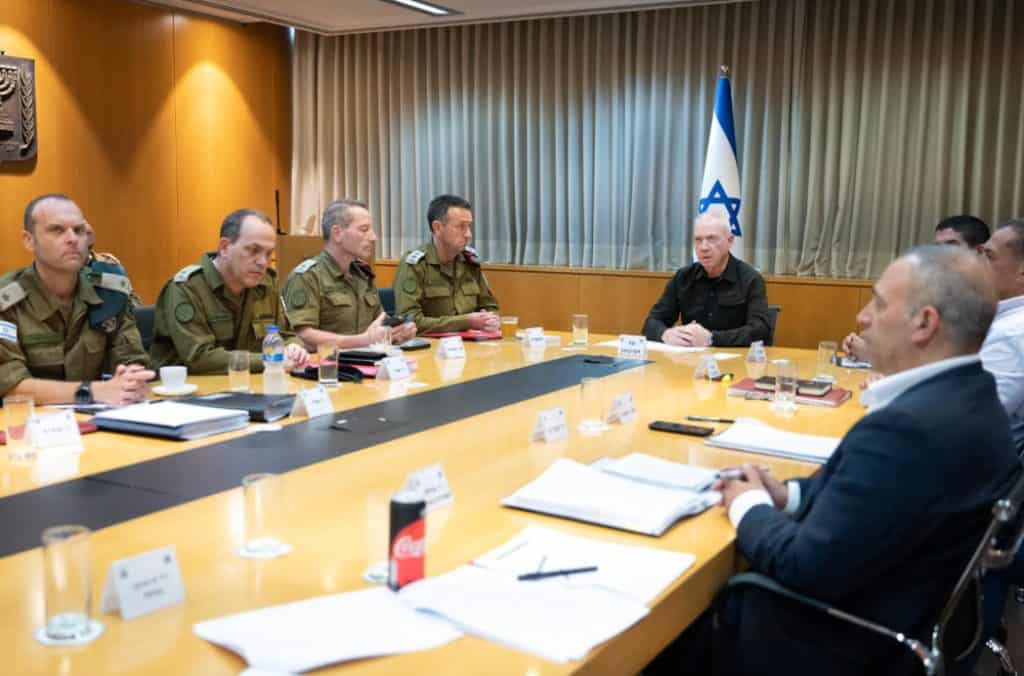
The Israel Defense Forces prepared for possible Hezbollah escalation on September 19 and September 20 as the IDF carried out a strike on a Hezbollah commander in Beirut and struck numerous Hezbollah rocket launchers. The IDF has increased the tempo and types of its operations in recent days and is facing threats from Hezbollah regarding “retribution” for Israel’s recent actions.
On September 19, the IDF warned residents of communities in northern Israel to remain close to their bomb shelters. The warning included communities in the Golan and the Huleh Valley, the town of Rosh Pina, and the city of Safed. Israel already evacuated communities along the Lebanese border since October 2023, when Hezbollah began attacks on Israel.
The new IDF Home Front Command guidelines included a request for people not to gather in large numbers, such as at weddings, and to keep a close watch on community gates. Most small communities in Israel have a gate, and the Ministry of Defense and IDF have boosted the protection of communities in northern Israel by issuing rifles and gear to local security teams. In some places, the new security preparations have included installing gates that can also close to prevent traffic on larger roads that access multiple communities.
The warnings to communities in northern Israel came amid several converging trends. Thousands of Hezbollah members’ pagers exploded in Lebanon on September 17, along with more communications devices the next day, causing numerous injuries and some two dozen deaths among Hezbollah members. Hezbollah blamed Israel and vowed to respond.
On September 19, the IDF struck 30 Hezbollah launchers in the afternoon and followed up the strikes with another round of attacks that hit another 100 launchers. Overall, this effort destroyed “approximately 1,000 barrels that were ready to be used in the immediate future to fire toward Israeli territory.” The preemptive strike against the launchers was similar to Israel’s effort to preempt Hezbollah’s rocket fire on August 25. During that round of airstrikes, Hezbollah had prepped an attack in response to the IDF strike in Beirut in July that killed Hezbollah commander Fuad Shukr. The IDF eliminated him because of a Hezbollah attack that killed 12 children and teens in Majdal Shams in the Golan.
In the evening of September 19, Israeli Defense Minister Yoav Gallant held a briefing with IDF Chief of Staff Lieutenant General Herzi Halevi and other officials. The meeting focused on “various possible developments in the campaign against Hezbollah on Israel’s northern border and the goal of ensuring the safe return of Israel’s northern communities to their homes,” Gallant’s office said.
“Over the past several days, we have held a series of important discussions. In the new phase of the war, there are significant opportunities but also significant risks,” Gallant stated. He noted that Hezbollah was now feeling pressured by Israel’s strikes. “Our goal is to ensure the safe return of Israel’s northern communities to their homes. As time goes by, Hezbollah will pay an increasing price.”
Gallant’s statements were a curtain-raiser for another IDF strike in Beirut on September 20. The IDF eliminated Ibrahim Aqil, the head of Hezbollah’s operations unit. He was killed in a strike that targeted a building where he was meeting with commanders of Hezbollah’s Radwan Force, the IDF said.
The strike on Aqil and the Radwan force commanders increases the major toll that Hezbollah has suffered in recent days. The group lost more than two dozen members due to the exploding pagers and more key members on September 20. The IDF noted in a statement about the Beirut strike that Hezbollah has fired more than 8,000 rockets at Israel since October 2023.
Hezbollah vowed in a series of statements that it would retaliate. Hossein Salami, the Islamic Revolutionary Guards Corps commander, also sent Hezbollah leader Hassan Nasrallah a message claiming Israel would face a “crushing response,” according to Iranian state media.
Gallant visited northern Israel on September 20 and met with the head of Israel’s Northern Command and IDF division commanders in the north. The IDF has several divisions deployed in the area, including the 91st Division, a territorial division deployed along the Lebanese border, the 36th Armored Division, and the 98th Division, which recently deployed to the north from the Gaza sector.
On September 20, the IDF lifted the restrictions it had put on northern communities but encouraged the communities to adhere to instructions from the IDF’s Home Front Command, as the situation could change rapidly.







